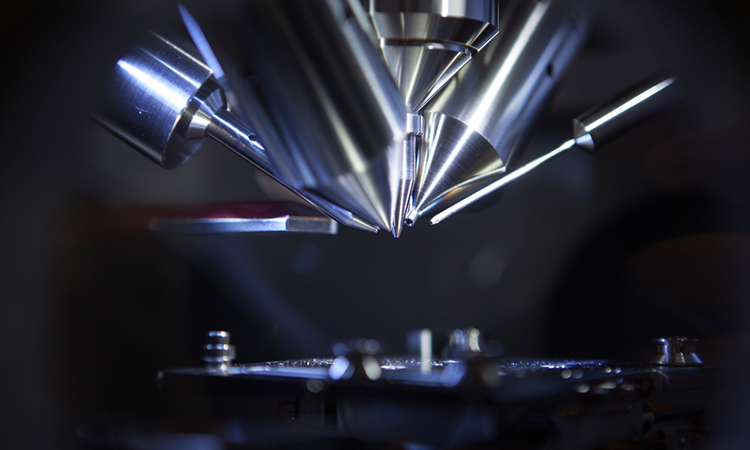Nanolitre‐scale cell assays developed with droplet microarray-mass spec
Posted: 16 March 2021 | Victoria Rees (Drug Target Review) | No comments yet
A team has developed nanolitre cell assays on droplet microarrays to enable pharmacodynamic monitoring in live cells.


Researchers report that they have integrated nanolitre‐scale cell assays on droplet microarrays with matrix‐assisted laser desorption/ionisation (MALDI) mass spectrometry (MS) imaging (MALDI-MSI) approaches into a droplet microarray–mass spectrometry imaging (DMA-MSI) platform.
The new MALDI-on-a-chip technology was developed at Mannheim University and the Karlsruhe Institute of Technology (KIT), both Germany.
According to the scientists, in pharmaceutical R&D, cell‐based assays are most frequently used with readout that rely on fluorescence‐based and other labelled techniques for analysis of various cellular processes. Superhydrophobic–hydrophilic droplet microarrays and MALDI-MS have recently emerged as key methods used for miniaturised high‐throughput cell assays and for label‐free molecular high‐content drug profiling, respectively.
In their study, the researchers used A549 lung cancer cells to demonstrate the concentration‐response profiling of a pharmaceutical compound – the fatty acid synthase inhibitor GSK2194069. Direct cell culture on droplet microarrays enabled the combination of microscopy and high speed, high molecular content analysis using MALDI–MSI.
The team say that miniaturisation of array spots down to 0.5mm confining 40nl droplets allowed for MALDI imaging analysis of as few as 10 cells per spot. Partial automation of the process ensured a fast sample preparation workflow.
The researchers say that taken together, the integrated DMA-MSI platform that combines MALDI‐MSI, as a label‐free analytical readout, with the miniaturised droplet microarray platform is a valuable complement to high throughput cell‐based assays technologies.
“This approach enables highly miniaturised, cell‐based, high‐throughput assays combined with both optical and sensitive label‐free MSI readouts on a chip. The DMA-MSI platform reveals new opportunities to monitor pharmacodynamics in live cells, which is crucial for drug discovery and precision medicine,” the authors of the study write in their paper.
The results of the study were published in Advanced Biology.
Related topics
Assays, Cell-based assays, Imaging, Mass Spectrometry, Screening
Related organisations
Karlsruhe Institute of Technology (KIT), Mannheim University








